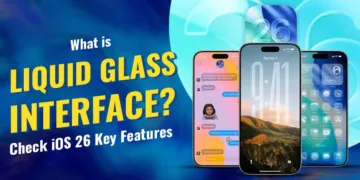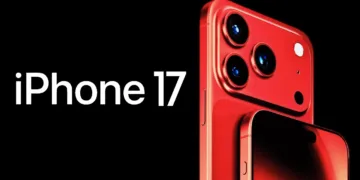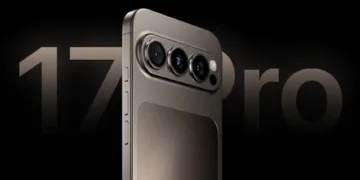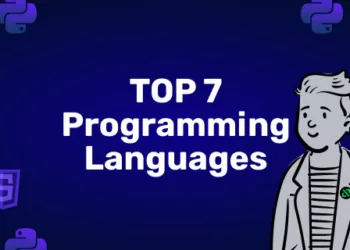In a grand finale that captured the attention of viewers across the nation, the Australian Idol 2025 winner was finally revealed, marking the end of a thrilling tenth season of the iconic talent show. But beyond the lights, music, and excitement of the crowning moment, what truly stood out this season was how technology redefined the audience experience and voting process, showcasing the seamless fusion of entertainment and innovation.
This year, Marshall Hamburger emerged as the Australian Idol 2025 winner, impressing judges and fans alike with his soulful voice, versatility, and commanding stage presence. While his talent undoubtedly played a significant role in his journey to victory, the revamped voting system backed by technology played an equally pivotal part in the overall dynamic of the competition.
A Season Marked by Technological Evolution
Australian Idol has long been a cultural staple in the country’s entertainment scene, and Season 10 marked a significant milestone—not just in its anniversary, but in its approach. The producers of the show embraced a variety of tech innovations that reshaped how contestants connected with their fans and how the public cast their votes.
From live SMS to app-based voting, and even real-time performance analytics, the show leaned heavily into digital transformation to modernize the way Australia engages with live television. The new tech-driven voting system ensured transparency, inclusivity, and a broader reach, allowing fans from across the country to cast their votes securely and efficiently.
How the Tech-Driven Voting System Worked
The highlight of Season 10’s technological upgrades was the mobile voting application, available on both Android and iOS platforms. Viewers could watch performances in real time and vote directly through the app, with an option to submit feedback on performances via emoji reactions and instant polls.
The platform also implemented blockchain-inspired mechanisms to ensure voting integrity. This ensured that each vote was unique and traceable without compromising user identity. The data was encrypted and processed using cloud-based infrastructure, which allowed instant tallying of results after each episode.
With artificial intelligence and machine learning built into the system, producers could also track engagement metrics, predict fan favorite trends, and provide judges with insights into audience sentiment—all while protecting user privacy.
Fan Engagement Like Never Before
Aside from the main voting system, Season 10 utilized interactive social media integrations and AR (augmented reality) to bring fans closer to the competition. For example, fans could use filters to “duet” with their favorite contestants or view behind-the-scenes clips in 360° using immersive video technology.
Additionally, weekly episodes featured live feedback screens that displayed sentiment analysis from viewer interactions on Twitter and Facebook. This allowed contestants to gauge audience reaction in real-time and gave fans a greater sense of involvement in shaping outcomes.
This innovation, while initially experimental, became one of the defining features of Australian Idol 2025, turning passive viewers into active participants.
The Journey of the Australian Idol 2025 Winner
Marshall Hamburger’s journey was nothing short of inspiring. From his initial audition, where he wowed the judges with a powerful rendition of a Coldplay classic, to his genre-bending semi-final performance of a country-electronic hybrid, he proved he wasn’t afraid to take creative risks.
What set Marshall apart, aside from his vocal talent, was his ability to adapt to feedback and engage with fans through technology. His social media presence was authentic, his live streams personable, and his interactive responses on the voting app gained him a loyal following.
He used every digital tool available to his advantage, including short behind-the-scenes vlogs and real-time Q&As with fans. His strategic use of tech not only helped him connect with audiences on a deeper level but likely contributed to his eventual win.
Tech in Talent Shows: A New Standard?
The success of the tech-driven approach in Australian Idol 2025 sets a new precedent for reality television in Australia. The season demonstrated that when entertainment leverages technology smartly, it creates a more democratic, engaging, and immersive experience for viewers.
Critics have praised the move, noting that this level of transparency and interactivity could be applied to other live shows, award ceremonies, and even political debates. It also hints at a broader trend: audiences today crave involvement and personalization, both of which are made easier through digital tools.
Looking Ahead to the Future of Idol
As the confetti settles and Marshall Hamburger takes his first steps into music stardom, the future of Australian Idol looks brighter than ever. Not only has the competition unearthed yet another incredible talent, but it has also shown the entertainment industry how embracing innovation can deepen audience engagement and elevate the format.
Season 10 may be over, but the impact of its tech-first approach is likely to influence future editions of Australian Idol—and possibly the entire landscape of talent-based reality TV in Australia.
In conclusion, the crowning of the Australian Idol 2025 winner was more than just a celebration of talent; it was a showcase of how technology is transforming the way audiences connect with television. From app-based voting to interactive AR experiences, Australian Idol proved that innovation and entertainment go hand in hand.



























